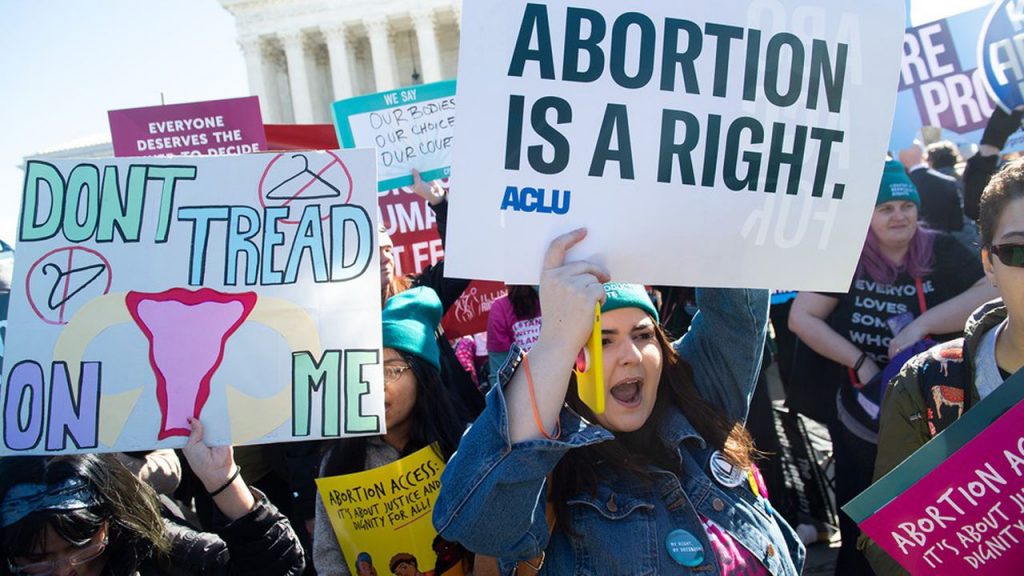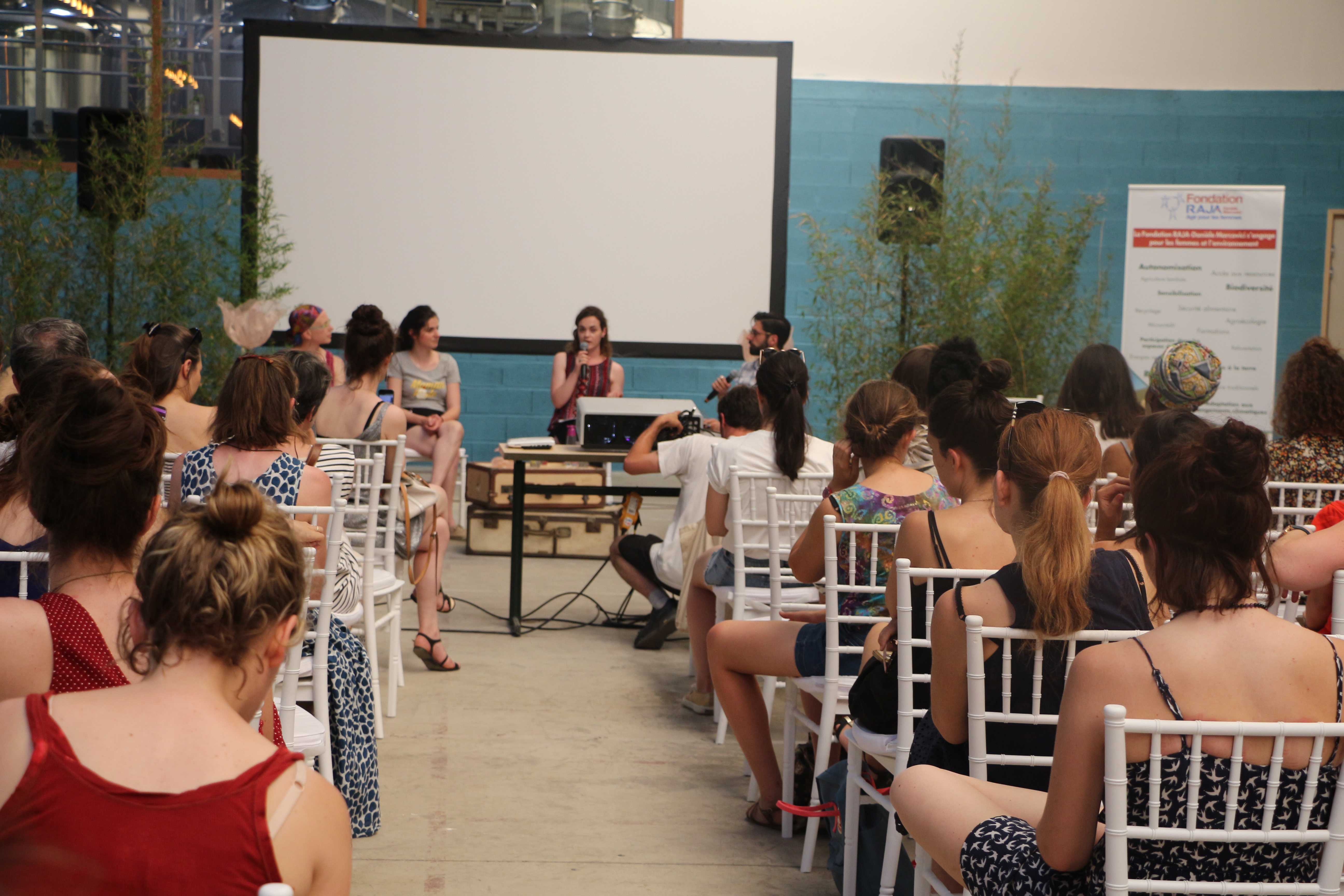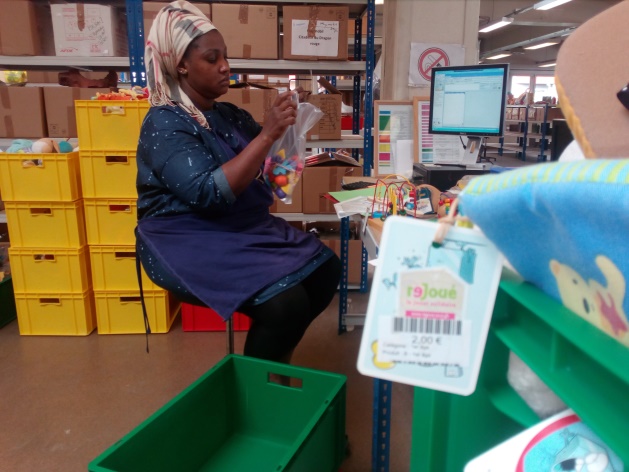Interview – abortion under threat in the US
Erica Hensley a journalist with The Fuller Project specializing in data analysis and public health in the United States, looks at the potential overturning of Roe v. Wade by the Supreme Court, which would transfer abortion legislation to the states, as 26 of them are likely to ban abortion.
24 May 2022


Erica Hensley is a journalist with The Fuller Project specializing in data analysis and public health in the United States, with a particular focus on reproductive health and equity.
Before joining The Fuller Project, she freelanced and worked as an investigative reporter focusing on public health for one of the first Southern non-profit digital outlets, Mississippi Today, where she was a Knight Foundation fellow and her COVID-19 work helped put national attention on Mississippi’s response to the COVID-19 pandemic.
- Could you explain to us what is the actual legislation regarding abortion in the United States? Is abortion easy to access?
In the US access really depends on where you are. The federal legal regulation is that states can restrict abortion, but they cannot ban it before viability (about 24 weeks), and that was from a Supreme Court case in the 1990s Planned Parenthood v. Casey, that really upheld the 1973 Roe v. Wade case, which pretty much established a woman’s right to choose an abortion. I think that language gets confused a lot. And to me during this period I think important to draw attention to the fact that we never really codified the right to an abortion in the US.
In the 70s we interpreted the Constitution to mean that women had that right to make that decision, and then in the 1990s the Supreme Court upheld that decision and made it a little bit more advanced, saying that states, they’re allowed to restrict abortion – like enforcing waiting periods, requiring abortions be performed by a doctor – but they cannot outright ban it before viability. So that’s been the standard for decades. The access really depends on where you live. Mississippi has only had one abortion clinic for years, and this is about the size of Greece. If you are not in Jackson, the capital you must travel, either to the capital or out of state to get the procedure. And that of course, brings up all kinds of other complications. If you have a transportation, if you have childcare.
It is also not free, the average is about 500 dollars for pill abortion but can be much more later in pregnancy. Some insurance providers will cover it, but for example if you’re on Medicaid, which is our state sponsored health insurance if you’re low income, they cannot cover it unless there’s extreme reasons or medical emergencies. We have the right in the US, but it has never been easy to access for everyone and it all depends on where you live.
- There was a leak a few days ago about the Supreme Court wanting to strike down the landmark Roe v. Wade decision. Could you tell us more about this?
The leak was basically a drafted opinion that said Roe v. Wade should be overturned, and what we’ve learned since and what those of us who’ve covered politics here before have known is that the Supreme Court is this very veiled operation. There’s not a lot of public interface. There’s not a lot of public access. They are not elected but appointed by the President so it’s really this important institution in our government but there is not a lot of oversight. There are nine Supreme Court justices. They have a lifetime appointment, so they have to either die or step down. It’s interesting because Justice Ruth Bader Ginsburg, who was a long-time serving justice who passed away in 2020. She was a champion for abortion rights. But she died while on the court and while President Trump was in office, so that appointment automatically became open, and it went to a very different ideological Justice. Even though our Justices are supposed to be nonpartisan, they’re still appointed by a partisan president. They’re appointing people who tend to agree with their interpretation of the law. You know, for Republicans, it’s the right to bear arms, sort of conservative when it comes to financial and privacy rights of people. It’s ironic because the abortion decision was originally a privacy decision, the right chose for oneself.
Once Justice Ginsburg passed away, that just kind of opened the floodgates for what Republicans already wanted, which was a majority on the Supreme Court. And now they have it with 6 Conservatives and 3 Liberals. It’s just heavily conservative, and unless one of the conservative justices moves to the middle, the decisions are kind of cut and dry.
About the leak, they work on these drafts internally and this is something that has always happened. They write things up, they send it to the colleagues to decide. Is this your interpretation of the Constitution? You know that it was not a surprise to me that this piece of paper existed.
What the surprise was is that it got out because that is unprecedented. To me it doesn’t really matter why it was leaked. It matters that it jolted people upright to know this is maybe coming in a month that could reverse 50 years of federal abortion protections. But we do want to be very clear that it the draft still could change.
Roe v. Wade case was an interpretation of our 14th amendment of our Constitution, which said that abortion is basically a private decision between a patient and a provider, and the US government can’t interfere with that. So again, it was never really a solid right to abortion. It was an interpretation that that should be as private decision. And it was not until the 1990s with the Planned Parenthood v. Casey case that the US Supreme Court made it more concrete. States can restrict abortion, but they cannot outright ban it.
What is happening now is the result of a move Mississippi made in 2018, betting that it will go up to the Supreme Court, who by then would be Conservative, and would be more likely to overturn abortion. In 2018, Mississippi passed their 15-week abortion ban, making most abortions illegal after 15 weeks of pregnancy, about two months earlier than Roe. They passed that law knowing it was unconstitutional, they knew that it would be blocked because they cannot ban abortion before viability, which is around 24 weeks. And they knew it, they wanted this to go to the Supreme Court.
President Trump was in office and had already appointed one Supreme Court Justice. They thought there will be other openings and Trump was openly against abortion.
The timing on Mississippi’s part was very purposeful. They passed the law in 2018. Local courts immediately blocked it, it’s unconstitutional, so this law has never been in effect in Mississippi. There are three levels to courts, all got blocked. The state appealed to the Supreme Court, and that was the real shocking moment for me last year because the Supreme Court agreed to hear this case. For two decades states have tried to get the Supreme Court to take up an abortion case like this and they’ve always said no, because it’s decided per that Planned Parenthood v. Casey case.
For me when they said yes, we will take this, was when it was kind of like this is real. It also really opened the floodgates for other states to start passing all these bans you see right now: six-week bans, total bans, 15-week bans. 2 years ago, none of these existed, but it’s just been this flood. All because of just one little Mississippi case, and I don’t mean little to degrade it. It had a huge impact, but I don’t think most Americans at the time were paying enough attention to realize what it could do.
And in one month you might not be able to get an abortion in half of our states, as the Supreme Court decision is due for next month.
We have 50 states here. 13 of them have what’s called a trigger law, which means automatically in those states, abortion will be illegal. Some have different caveats where it has to be 30 days, some need the state attorney to like sign off on it, some say immediately. So again, it comes down to where you live, where you were born and maybe where you cannot afford to leave, or maybe where you’ve chosen to be because you love the place. All this will determine your access to abortion.
In total, there are about 26 states that have said they will quickly move to ban it.
- If the Supreme Court overturns abortion rights, what would become the legislation regarding abortion? What would be the consequences for women? For society?
The consequences for women will be the state will decide if you are able to get an abortion or not legally. And I think it will reinforce self-managed abortion by pills. Is not a medical risk for earlier pregnancies, so your risk will be mostly legal. The state that you live in determines your rights with regard to your reproductive freedom. Which is unprecedented in my lifetime.
For example, there were about. 55,000 abortions in Texas per year for the past decade.
And they have a trigger law. So that’s 55,000 pregnant people who will have to either self-manage at home or leave the state. In Mississippi there was about 3000 abortions, so that’s still 3000 people who won’t be able to get access anymore. Mississippi is much poorer. It’s the poorest state in the nation. There’s a lot of health disparities. We don’t have great access to sex education or birth control. We have more unplanned pregnancies. We’re just going to see that the state is not ready to take care of that.
It just carves out more health disparities. Either you have the money, the time off work, the support from a partner or a family member to take care of the kids you already have, and you can get a plane ticket or you can take the long drive out of state. Or you don’t and you have no option by no fault of your own. The state is telling you because you might not have the money right now or a car, you can’t get an abortion where you live. It kind of pushes folks into the shadows more.
Self-managed is safe but your risk will be legal. And I do talk to obstetricians who say this has a sort of chilling effect on women. You’re not going to be as honest with your provider that you might have self-managed an abortion because you’re worried about your own risk. You’re now worried about their risk because a lot of these penalties are on the providers, not yet the woman. It’s just pushing women and pregnant people into the shadows in an already vulnerable time because we have the highest maternal mortality rates in the developed world. In the Deep South where I live, we aren’t able to even take care of people who want to give birth. We have the highest infant mortality rate in the developed world. We’re not doing a good job of taking care of our pregnant people in this country. Yet by default we might have more pregnant people who don’t want to be, and that’s dangerous here. And I don’t say that from an subjective place I say that statistically because we have so many people that die during and after childbirth year.
- According to you, was this move something to expect from the Supreme Court? Why?
The information and the drafted opinion to overturn Roe V. Wade was not a surprise to me because President Trump said this is what he was going to do. Republicans, in very conservative states, have said, this is what they wanted to happen.
Most states in the Deep South have passed a ton of laws in the last 20 years to restrict or limit or unconstitutionally ban abortion. Most of those laws have been blocked, which has had this like weird reverse effect where people in states like California and New York who have never really had to worry about what was happening because they never saw these laws take effect because it was always blocked right away.
The Mississippi law never stopped winding through the courts for 4 years, and I think for a lot of progressive folks, especially on our coasts of our country, it has been out of sight out of mind. They have very robust access in their states. They know abortion is not banned in the South even though it’s not quite as easy, but I think a lot of people have just considered abortion access a done deal.
Where I work and with advocates I talked to and doctors I talked to Roe v. Wade case has never really been a guarantee in the South. People who didn’t take it seriously before were wrong and are now very surprised. But I was not.
- Since the leak, how have women and feminist movements reacted? How have they put pressure on the Supreme Court?
There has been a lot of outrage which is expected. But again, most of my sources on the ground here have been planning for this for some time. This wasn’t a surprise and frankly some of them are kind of upset because they’ve been yelling about this for long time, down here and a lot of the mainstream movements kind of started talking about it when President Trump was elected.
But I don’t think people took it seriously. A lot of my reproductive justice organization sources who like work at the intersection of race and gender and all the barriers to accessing a fulfilled life much less a pregnancy or a parenthood decision have been saying for a long time that the mainstream movement hasn’t done enough to protect our right to abortion. Some of them are a little exhausted by the fact of having to at best comfort a lot of sad Democrats. People that didn’t think this was coming are now so upset and they’re marching with signs. And that’s their right and important in some ways for free speech. But for people that have been screaming about this for decades don’t have time to be explaining this to other people when they’re having to figure out maybe how to funnel people to other states to get abortion care in less than 30 days potentially.
There’s kind of like this moment of nothing left to lose within the abortion movement because there’s always been very mainstream efforts like Planned Parenthood, who provide abortions and do political work. But there’s a lot of people that haven’t ever felt really represented by that movement, so they’re kind of starting to do their own thing. Again, because there’s nothing left to lose like, everything they fought for is about to crumble potentially. You’re just seeing more subgroups doing whatever they have to do to care for their community, because no one has helped them before.
People have been mailing a lot of things to the Supreme Court, some coat hangers, which is a very outdated, unhelpful reference because most of our abortions in this country are by pill and not surgery anymore. This outdated idea of sort of the back-alley coat hanger abortion is unhelpful because it’s not accurate. Advocates right now are more focused on getting people information about how they can safely manage.
There are a lot of protests at the Supreme Court justices’ homes. But they’re not elected, so they don’t really bow to pressure.
- How have political parties reacted since the draft was shared?
Some of that pressure has come on elected officials at the state level because most polling surveys of our citizens show that most people do not want to completely abortion ban. People want some restrictions and different parties believe that should come out in different ways. But most Americans do not support total bans. There is a lot of pressure locally.
Of course, Democrats are upset, but I think even moderate Republicans whose party is technically anti-abortion but who understand that there certainly needs to be medical rape, and incest exceptions at the very least, and who are not so stringent on these early abortion bans – they think that should still be a woman’s right to choose.
State legislators have to figure out what to do. How are we going to take care of more pregnant people? And we’re certainly not prepared to do that financially in the South.
We already struggle to like take care of who we have here now.
If a clinic closes in Mississippi, there is no abortion access in Mississippi other than self-managing. I think some Republicans are just now realizing what this means for their States and their constituents, and their pregnant people.
The Democrats really quickly pushed an act to like, codify abortion rights, but they’ve never had the majority to do that, so it was really kind of just a vote in appearance. We do that a lot in politics, but there was no real chance of that happening and there won’t be for some time.
There was a lot of surprise on all sides. I think Democrats really didn’t think it would ever get this far and I think many Republicans as well didn’t think they would get this far because it’s been a sort of campaign promise for so long and all of a sudden, it’s a reality and then things just moved really, really quickly.
- If abortion is banned, will it be seen as a victory for Trump?
I think he will certainly see it as one. And I think the hard-line Trump supporters who maybe voted for him because of this will see it’s as a victory.
But there’s a lot of Trump voters who voted for him for his fiscal conservative policies and not so much for his social ones. And that’s probably because they’ve seen his record and know that he wasn’t anti-abortion a few decades ago. Some of our fiscal conservatives are having a moment of concern that the anti-Abortion, super pro-gun, very far right, nationalistic folks have gotten too much power in the party. Because not all of our Republicans are completely anti-abortion, they are pro-life, and they want certain restrictions. But they don’t want this either.
It will be a victory for some, but for other Republicans I think it will be a moment of concern that they let this kind of get out of hand, and now it’s going to be really hard to correct. Once it goes back to the states, the only thing that could change that is if the Supreme Court, then takes it away from the states again. It’ll be years before they could reassess this completely.


